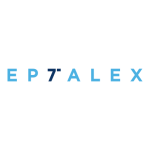SECTION 1: General outlook
1.1 Please summarise the broad trends and patterns in Chinese investment into your jurisdiction, citing any recent specific examples.
The interests of the Chinese government and Chinese investors in Lebanon focus on big infrastructure and megaprojects, such as railroads, ports, airports and power plants.
One of the main endeavours of the last years is the implementation of the new Silk Road project, also known as One Belt, One Road. In this context, Lebanon is a crucial landmark due to its strategic position and the presence of the only two harbours of the Middle East in the Mediterranean Sea in its territory.
In this regard, recently the Silk Road Chamber for International Commerce has envisioned granting $2 billion in low interest loans to Lebanon to build new roads.
Investors recently showed interest in the establishment of an airport in the Lebanese region of Koleiat, as well as in developing the port of Beirut (Lebanon's capital).
Moreover, in 2017, China has participated to widen and deepen the port of Tripoli, the closest to Syria, supplying various types of equipment; funds may be also deployed in the near future either via facilitated loans or other means.
Since 2015, the Union Pay Credit Card has been used in Lebanon and accepted at numerous ATMs. This operates in Lebanese pounds (LBP) and US dollars.
Last but not least, a few years ago China granted Lebanon a loan aiming at introducing Chinese consumers to Lebanese products. The loan will be repaid through Lebanese products and will in this way support the Lebanese agro-food sector (five products were selected: olive oil, wine, nuts, canned fruits and jams).
1.2 How would you summarise your jurisdiction's attitude towards Chinese investment?
Lebanese officials and government are very open to collaborate with Chinese investors. The business and commercial bonds between the two countries have expanded since the mid-nineties and strengthened in the first decade of 2000. From 2013, China has been the largest importer into Lebanon, followed by Italy and the US.
A Lebanese-Chinese Business Council was established in 2012 with the aim of promoting business between Lebanon and China, including organising business meetings to bring together Chinese, Lebanese and Arab businesses.
In April 2017, prominent Lebanese and Chinese business groups signed in Lebanon two memorandums of understanding to boost the Belt and Road Initiative (BRI), establishing a Business Council for the Silk Road.
From another perspective, Lebanon has a strong collaboration with China in the humanitarian sector, education and culture. The Chinese government has donated around $100 million to Lebanon since 1996 and has provided important assistance to the Syrian refugees living in Lebanon. Furthermore, it recently funded a project to build the Lebanese National Conservatory of Music in the suburbs of Beirut.
1.3 What is your outlook for Chinese investment into your jurisdiction over the next 12 months?
In the upcoming year, investment will focus on strategic energy cooperation and key infrastructure projects, and on the improvement of collateral sectors such as banking and finance.
The importance of Lebanon's role in the BRI is bolstered not only by its location in the region, but also by the advantages of being a free market economy based on an unrestricted exchange of goods, services and capital; high-liquidity and compliance with international standards for banks and financial institutions; and highly-qualified, polyglot and young human resources.
Cooperation in education will continue to be pursued to increase the exchange of knowledge and resources and to deepen the cultural synergy between the two countries: for a decade Mandarin language programs have been offered in two of the major universities in Lebanon.
SECTION 2: Investment approval
2.1 Explain the process and timings for foreign investment approval.
Regardless of the nationality, investors do not need any permission or approval for private investments, while there are certain rules to bear in mind for public investments.
Investors can benefit from the provisions of the Investment Law No 360 of 2001 after getting the approval of the Investment Development Authority of Lebanon (Idal), which is in charge of approving and licensing projects covering industry, agriculture, agro-food, tourism, information technology, telecommunication and media. The Council for Development and Reconstruction can also be contacted for major reconstruction and development projects in Lebanon.
All foreign investors may be subject to verification with regards to business conducted in other countries and not in line with Lebanese laws.
2.2 Briefly explain the investment restrictions for any specially regulated/restricted sectors, including whether the government is entitled to any special rights in those sectors.
All economic sectors are fully open to foreign investments, except those concerning weapons, media in specific circumstances, activities related to national security, and in some cases real estate ownership.
A foreign entity or individual cannot own real estate rights over 3,000 square meters or conclude a lease for longer than 10 years, otherwise the approval of the Council of Ministers by decree is required.
2.3 Which authority oversees competition clearance?
Lebanon has not enacted an anti-trust law, and no authority oversees competition matters.
The Lebanese Criminal Law mentions strict sanctions for any attempt to form any monopolising scheme, although there is no certain threshold for notification.
2.4 Briefly explain the merger clearance process.
Lebanese law does not mention a specific clearance process for mergers and acquisitions regarding private companies; instead, public M&A are regulated in more details. In case of banks and financial institution the Capital Market Authority and the Central Bank of Lebanon (CBL) are also involved in the process.
Any investor wishing to own more than 10% of voting rights, or the absolute majority, in a company quoted in the official or secondary market, presents a tender offer or bartering via a financial broker. The bidding transaction should not take less than 10 stock exchange sessions and there is no deadline.
In case of banks, after the submission of the tender offer:
Within 60 days from the submission of the request, the CBL takes a provisional decision on approving or rejecting the offer;
In case of approval, the CBL communicates conditions, deadlines, and guarantees required;
Within 30 days from the submissions of the requested documents, the CBL takes its final decision.
2.5 Are there approval requirements when a foreign investor increases or exits its investments?
There are no restrictions or approval requirements on increasing or exiting an investment, otherwise provided by the law or the specific contract governing the investment.
SECTION 3: Investment techniques
3.1 What are the most common legal entities and vehicles used for Chinese outbound investment in your jurisdiction?
Chinese investors mostly use joint-ventures (JVs) and tailored agreements. Nonetheless, the most common and convenient legal entities they could use are joint stock companies, offshore companies, holding companies and foreign companies' branch or representative offices.
3.2 What are the key requirements for the establishment and operation of these vehicles that are relevant to Chinese investment?
The key requirements for establishment and operation of these vehicles are as follows:
Joint-ventures
A JV may take a number of forms in Lebanon, giving parties significant flexibility in designing a suitable structure for their projects. It can be either a simple contractual arrangement where the parties outline the terms under which they will collaborate without establishing any legal entity; or an independent legal entity especially established to carry out the project.
Joint stock companies
A joint stock company can conduct all kinds of business activities. The minimum capital is LBP30 million ($20,000). Only nominal shares are allowed.
Offshore companies
Offshore companies are a special type of joint stock companies regulated by the Lebanese Law No. 46 of June 24 1983 and its amendments. Their headquarters can be located inside or outside Lebanon, however they must operate outside Lebanon. Offshore companies' capital can be in foreign currency and there are no nationality restrictions for shareholders and directors.
Offshores benefit from many tax exemptions and specific treatment for work permits of foreign employees. This kind of corporate structure can be very beneficial to Chinese investors interested in the reconstruction of Syria.
Holding Companies
Holding companies are a special type of joint stock company governed by Law No. 45 of June 24 1983 and its amendments. Their activities are limited to acquiring shares in existing or newly incorporated companies, granting loans to companies in which they own shares and parts, acquiring and leasing intellectual property rights and acquiring movable or immovable properties for the requirements of their activities.
Foreign companies' branch or representative office
Foreign companies can operate in Lebanon through a branch or a representative office after obtaining a permit from the Ministry of Economy and Trade and registering the company with the Beirut Commercial Register.
A branch can undertake the same commercial activity of the mother company (except when the law requires a certain legal form or the Lebanese nationality).
A representative office is a commercial entity that offers technical assistance and only markets the products or services of its parent company, which also bears all expenses and costs of the office.
SECTION 4: Dispute resolution
4.1 Does your jurisdiction have a bilateral investment protection treaty with China or other jurisdictions commonly used for investing into the country?
The Bilateral Investment Protection Treaty (BIT) between China and Lebanon entered into force on July 10 1997. It includes the standard protection clauses and provides for the free transfer of investments and returns in the territory of the respective contracting party.
With regard to investor-state disputes, Article 8 of the BIT sets a multi-tier procedure: it starts with the provision of a cooling-off period of six months recommending an amicable settlement through negotiations. If the dispute is not resolved within that time, either party may submit it to the competent court of the State accepting the investment, or alternatively to an ad-hoc arbitral tribunal established according to the Uncitral arbitration rules. In the latter case, the awards of the tribunal are final and binding. Compensation for damages and compensation received under an insurance contract are cumulative.
4.2 How efficient are local courts' enforcement and dispute resolution proceedings, and are there any procedural idiosyncrasies foreign investors must be aware of?
Lebanese courts' enforcement and dispute resolution proceedings are relatively efficient. Civil and commercial disputes before the Lebanese competent courts are introduced by filing a claim. Interim remedies can be decided by the competent local urgent matters courts, before a claim is heard or while it is still being heard or processed (provided specific conditions are gathered), for urgent matters in order to avoid imminent damages or to abate an illegal nuisance. It should be noted that legal proceedings for the enforcement of judgments and arbitral awards should be filed within 10 years from the date of their issuance.
4.3 Do local courts respect foreign judgments and are international arbitration awards enforceable?
Foreign judgments and international arbitration awards are usually enforceable in Lebanon provided they are granted exequatur by the local competent court. The exequatur is usually granted without reconsideration of their merits, after verifying that certain conditions are fulfilled (e.g. the foreign judgment is final and enforceable, is issued by a competent court abroad after due process, etc.).
For international arbitration awards, the competent local court would verify, prior to granting exequatur, that the awards exist and do not manifestly violate international public policy.
The competent local court may also verify if the foreign international award covers matters which fall directly under the exclusive jurisdiction of the Lebanese courts (e.g. matters relating to insolvency, employment contracts and social security, commercial representation agreements unless arbitration agreements were executed after the occurrence of the dispute).
4.4 Are local judgments and arbitration awards from your jurisdiction generally enforceable in other jurisdictions?
Local judgments and arbitration awards from Lebanon are enforceable in a large number of jurisdictions. Indeed, for the enforcement of judgments issued by Lebanese courts abroad, Lebanon has signed international treaties and bilateral conventions with various countries stipulating that judgments, issued in Lebanon or the signatory country, have the effect of res judicata in the territory of the other country, if they meet specific conditions (e.g. if the judgment was delivered by a competent court, the principle of contradictory was observed, etc.).
As for the enforcement of arbitration awards from Lebanon in other jurisdictions, Lebanon is one of the signatories of the New York Convention for the enforcement and recognition of arbitration awards which was signed by a large number of countries. The said convention obliges its signatories to recognise arbitration awards issued in countries adhering to the convention in their own jurisdictions in the same way as domestic awards (provided certain conditions are met) and denies the parties to the agreement access to their local courts in contravention of their agreement to refer their disputes to an arbitral tribunal.
SECTION 5: Forex controls and local operations
5.1 What foreign currency or exchange restrictions should foreign investors be aware of?
Lebanon is renowned for its freedom of exchange, which allows foreigners to import and export capital freely in any currency and form. While banking secrecy is still applied in the country, restrictions may occur because of the Foreign Account Tax Compliance Act (Fatca) for US citizens and due to the Automatic Exchange of Information (AEOI) regulatory reforms implemented to comply with tax transparency standards worldwide. Both China and Lebanon have committed to the AEOI starting from 2018.
SECTION 6: Tax
6.1 Are there tax structures and/or favourable intermediary tax jurisdictions that are particularly useful for foreign direct investment (FDI) into the country?
Tax regulation in Lebanon is very favourable for those who want to restructure their global business and take advantage of the Double Taxation Agreements that Lebanon has signed with 32 countries, including Belgium, Italy, France, Malta, Cyprus, Egypt, and the UAE.
6.2 What are the applicable rates of corporate tax and withholding tax on dividends?
Corporate tax is applied only on the total income or profits generated in Lebanon at a flat rate of 17% CIT (corporate income tax) and 10% WHT (withholding tax) on dividends for all joint stock companies and limited liability companies. Branches of foreign companies are subject to 17% CIT and an additional 10% post CIT. Holding companies and offshore are exempted from income tax and withholding tax, being levied according to a specific regime.
6.3 Does the government have any FDI tax incentive schemes in place?
According to the Investment Development Law No. 360/2001 Lebanon is divided into three zones (A, B, and C) that benefit of several incentives.
In Zone A, investors are granted with automatic work permits for all categories, provided that two-thirds of the employees has Lebanese nationality, and full exemption from income tax for a two-year period provided that at least 40% of the company's shares are listed on the Beirut Stock Exchange.
In Zone B, in addition to Zone A benefits, investors have a reduction of 50% on CIT and taxes on projects dividends for a five-year period.
In Zone C, in addition to Zone A benefits, there is a 100% exemption from CIT and Taxes on Project Dividend for a 10-year period.
A minimum investment size is mandatory and required to benefit from the incentives.
A package deal contract (PDC) is offered to investors that comply with specific criteria concerning minimum investment size, number of jobs created, and type of sector. The PDC includes:
Full exemption from income tax for up to 10 years
Full exemption from taxes on project dividends for up to 10 years
Up to 50% reduction on work and residence permit fees
Up to 50% reduction on construction permit fees
Obtaining work permits of all categories provided that at least two Lebanese nationals are employed against one foreigner
Exemption from the obligation of including Lebanese natural and legal persons in their boards of directors
Full exemption from land registration fees at the Real Estate Register and from fees needed for annexation, subdivision, mortgage and registration of rental contracts at the Real Estate Register.
6.4 Are there any reciprocal tax arrangements between your jurisdiction and China? If so, how can they aid investors?
At present, China and Lebanon have not signed a tax arrangement treaty to govern potential double taxation issues.
About the author |
||

|
|
Rima Abou Mrad Lawyer, Eptalex – Aziz Torbey Law Firm Beirut, Lebanon T: +961 (1) 616161 Rima Abou Mrad is a Lebanese qualified attorney, member of the Beirut Bar Association, and specialised in structuring complex local and international commercial transactions and drafting the relevant agreements. She also handles the daily operations of businesses and advices on on-going legal matters, including the protection and registration of their intellectual property rights in Lebanon and abroad. Furthermore, she handles various local and international litigation cases, and represents banks, insurance companies and landowners before the Lebanese courts. |
About the author |
||

|
|
Claudia Caluori Senior foreign counsel, Eptalex – Aziz Torbey Law Firm Lebanon, Beirut T: +961 (1) 616161 Claudia Caluori is senior foreign counsel at Eptalex ATLF, qualified attorney at law and mediator in Italy. She specialises in transnational corporate and commercial law, advising in the international development of small and medium enterprises (SMEs), the implementation of business partnerships in Europe, Lebanon, and the UAE (with a focus on GCC VAT), as well as foreign direct investments. Furthermore, Caluori is strongly dedicated to the management and resolution of conflicts. She is a mediation trainer and an HP lecturer on alternative dispute resolution (ADR) in investor-state disputes. |
